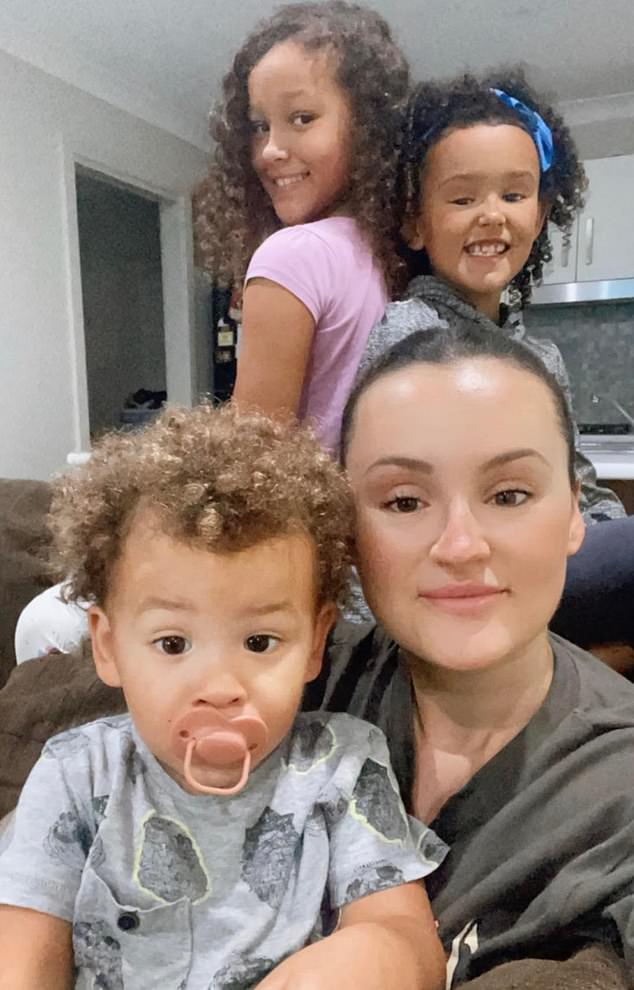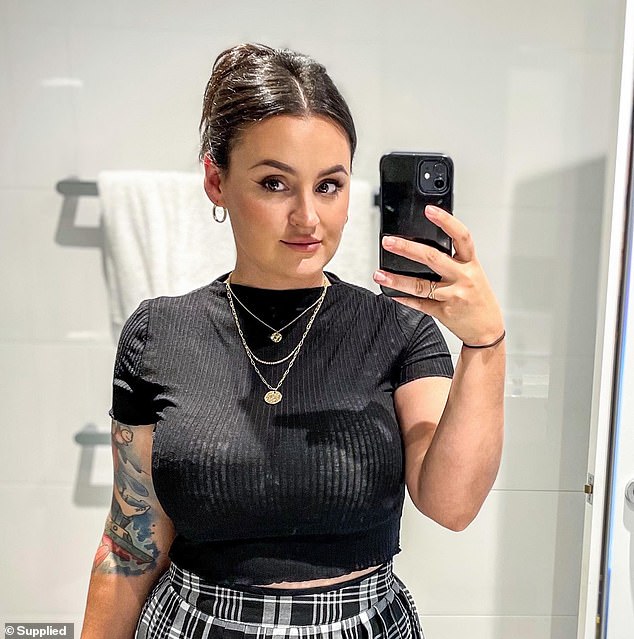Cancer doctor names two things she does to lower the risk of disease
Dr. Ursina Teitelbaum is a medical oncologist at the University of Pennsylvania
A doctor has shared two things she does to prevent a common form of cancer – and the symptoms you should never ignore.
Dr. Ursina Teitelbaum is a medical oncologist at the University of Pennsylvania, where she is part of the gastrointestinal cancer program.
The doctor revealed that while you can never predict who will develop colon cancer, there are several things you can do to prevent the disease or ensure you catch it early.
Dr. Teitelbaum told it Huffpost that although colorectal cancer is the third most common cancer worldwide, it is difficult to detect it at an early stage because its symptoms are often ignored.
Common symptoms of cancer include a change in bowel habits, rectal bleeding, anal or rectal pain, lumps, unexpected weight loss, fatigue, and anemia.
1. Don’t ignore abnormal symptoms or “warning signs,” even when you’re young
Dr. Teitelbaum claimed that younger adults rarely think their strange symptoms could be cancer — which is dangerous because health professionals have the same biases.
Ignoring the warning signs can lead to delayed diagnoses and worse outcomes. That’s why it’s essential that you listen to your body.
“Pay attention to any changes in bowel habits,” Dr. Teitelbaum emphasized. ‘If you’ve always pooped on schedule but are now often constipated, or you notice blood in your stool and have abdominal pain, it’s worth talking to a doctor.’
She added that you should also see a doctor if you have unexplained diarrhea, fatigue, or sudden anemia.
If you think your GP is not taking you seriously, it is advisable to get a second opinion.

A healthy lifestyle reduces the risk of colon cancer
2. Live an active lifestyle with a healthy diet – it really helps
Colorectal cancer is often linked to various lifestyle choices, such as cigarette smoking, alcohol consumption and being physically inactive.
A person’s diet is also an important factor: high amounts of red meat, processed foods and confectionery such as biscuits and lollipops are associated with a higher risk of bowel cancer.
Dr. Teitelbaum said: ‘There is no perfect predictor for colon cancer, but globally, a healthy lifestyle can help prevent it.’
A fit and healthy nurse who was diagnosed with stage three colorectal cancer at the age of 29 knows the battle of the disease all too well and shared the two subtle ‘warning signs’ she experienced that she wants all young people know.
Mother-of-three Talitha Akamarmoi, from the NSW Central Coast, experienced symptoms of chronic fatigue and iron deficiency for about six months prior to diagnosis.
Initially, doctors and colleagues attributed this to the fact that she was recovering from postpartum hemorrhage and eating a ‘bad’ vegetarian diet – and due to her age it was unlikely that anything serious was going on.
But after needing three iron transfusions, she eventually underwent a colonoscopy, which found a ‘long’ tumor in her colon causing the problems.

Talitha Akamarmoi, from Central Coast, NSW (pictured below right with her three children) was diagnosed with stage two colorectal cancer at the age of 29
“I was nervous about having a colonoscopy, I work with the colorectal surgeons, but knew I was in the best care,” Talitha, now 31, told FEMAIL.
‘The surgeon came in, closed the curtain around him and said, “We’ve found the cause of your anemia, there’s no easy way to tell, you’re bleeding slowly from a tumor in your colon.”
‘I was completely shocked when I heard it, I burst into tears and didn’t want to believe it.’
Talitha has a family history of colon cancer, with her grandfather suffering from the fatal disease in his early 50s.

‘I was completely shocked when I heard it, I burst into tears and didn’t want to believe it’
Talitha underwent laparoscopic surgery to remove her entire right half of the colon and surrounding lymph nodes, and then had to wait another week for the pathology results.
“While I was losing blood, I think some of it was reabsorbed before it completely finished, and then I didn’t notice anything left in the stool,” she said.
Unfortunately, the cancer had spread to four lymph nodes, requiring chemotherapy.
Today’s tests show that there are currently no signs of cancer in the body. She will need to be monitored indefinitely for the next three months.
Talitha’s biggest piece of advice to all young people is to be an advocate for your health, because colon cancer is not just an “elderly disease.”
read more here
